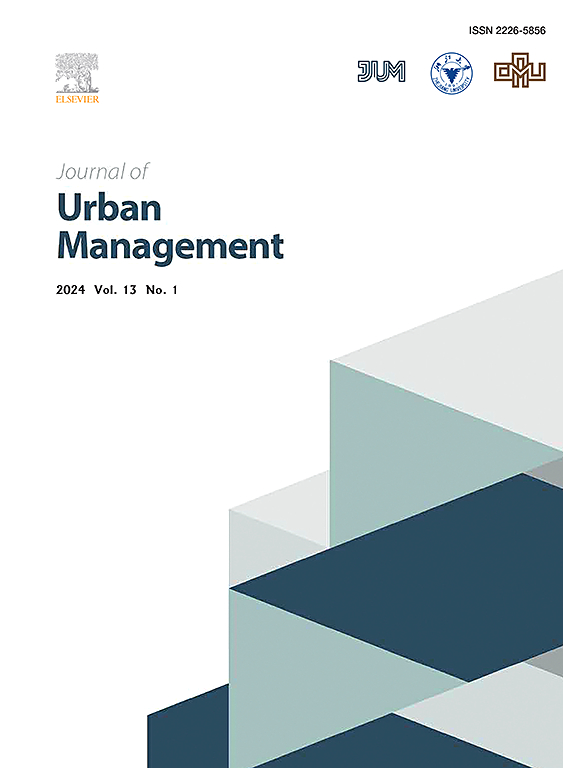校园步行性与情感步行体验的因果关系探讨:来自中国7个主要高等教育校园的证据
IF 5
2区 社会学
Q1 URBAN STUDIES
引用次数: 0
摘要
本研究以大学生的心理健康状况为研究对象,探讨了校园步行体验与大学生情感步行体验之间的因果关系。为了解决这个问题,我们结合了主观(感知)和客观(物理)步行性数据。该研究使用了来自中国七个高等教育校园的697名参与者的数据,采用反事实分析来估计校园可步行性对学生步行体验的影响。分析显示,与没有进行步行性改造的校园相比,生活在步行性改善校园的学生拥有积极步行体验的可能性高出9.75%。虽然步行态度与步行体验密切相关,但研究强调了校园环境和步行空间可用性等客观因素对步行体验的影响。地理特征,包括校园可步行性的改善,具有最实质性的影响,这种影响在不同的受访者群体中有所不同。这些发现强调了在评估步行性改善对步行体验的影响时考虑特定子集和校园特征的重要性。综上所述,本研究提供了令人信服的证据,证明改善校园可步行性与增强学生情感步行体验之间存在因果关系,表明需要进一步研究影响中国不同校园学生心理健康的中介因素和文化差异。本文章由计算机程序翻译,如有差异,请以英文原文为准。
Exploring the causal relationship between campus walkability and affective walking experience: Evidence from 7 major tertiary education campuses in China
This study investigates the causal relationship between campus perceived walkability and the affective walking experiences of students, with a focus on their mental well-being. To address this question, we incorporated both subjective (perceived) and objective (physical) walkability data. Using data from 697 participants across seven Chinese tertiary education campuses, the study employs a counterfactual analysis to estimate the impact of campus perceived walkability on students’ walking experiences. The analysis reveals that students living in campuses with improved walkability are 9.75% more likely to have positive walking experiences compared to those without walkability renovations. While walking attitude is strongly correlated with walking experiences, the study emphasizes the significance of objective factors such as campus surroundings and the availability of walking spaces in influencing the walking experience. Geographical features, including campus perceived walkability improvements, have the most substantial impact, and this effect varies across different subsets of respondents. These findings underscore the importance of considering specific subsets and campus features when assessing the impact of walkability improvements on the walking experience. In conclusion, the study provides compelling evidence of a causal link between improved campus perceived walkability and enhanced affective walking experiences among students, suggesting the need for further research on mediating factors and cultural variations affecting student mental health on various Chinese campuses.
求助全文
通过发布文献求助,成功后即可免费获取论文全文。
去求助
来源期刊

Journal of Urban Management
URBAN STUDIES-
CiteScore
9.50
自引率
4.90%
发文量
45
审稿时长
65 days
期刊介绍:
Journal of Urban Management (JUM) is the Official Journal of Zhejiang University and the Chinese Association of Urban Management, an international, peer-reviewed open access journal covering planning, administering, regulating, and governing urban complexity.
JUM has its two-fold aims set to integrate the studies across fields in urban planning and management, as well as to provide a more holistic perspective on problem solving.
1) Explore innovative management skills for taming thorny problems that arise with global urbanization
2) Provide a platform to deal with urban affairs whose solutions must be looked at from an interdisciplinary perspective.
 求助内容:
求助内容: 应助结果提醒方式:
应助结果提醒方式:


